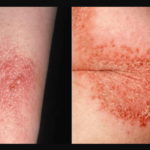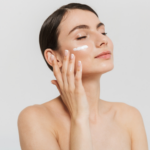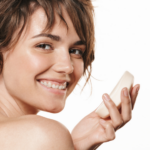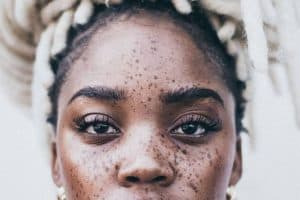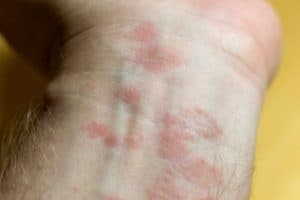If your skin is getting darker without much sun exposure, you may ask yourself, why is my skin getting darker without sun? It may seem like the sun is the only cause for your skin getting darker; however, it isn’t the only cause.
The primary cause for skin getting darker without sun is hyperpigmentation. This is a condition where the body produces more melanin, the pigment that gives color to the skin. A person afflicted with hyperpigmentation will see dark spots and patches on different parts of their body.
Any good dermatologist can easily diagnose hyperpigmentation upon first seeing your skin. But in other cases, a method called Wood’s Light Examination is done where a doctor uses a black light to lighten the dark patches on your skin.
Read on to learn more about why your skin is getting darker without sun and how to prevent this from happening.
Why Is My Skin Getting Darker Without Sun?
There are several reasons why the skin gets darker without the sun. The primary cause of hyperpigmentation is either rooted in biological factors or certain lifestyle choices you make.
Dr. Pearl Grimes, director of the Pigmentation Institute of Southern California, says: “The skin gets darker without sun when there is an increase in melanin caused by hyperpigmentation.” Dr. Grimes prescribes vitamin D and antioxidants to patients with hyperpigmentation to avoid over-production of melanin.
Hyperpigmentation can be activated by many things. Some of the main causes of hyperpigmentation are as follows:
Acne Scarring
It is one thing to have occasional bouts with acne, especially as a teenager. But when the condition is at its worst and cuts through the skin deepest, acne scarring occurs. And once it does, it leaves a mark that forms discoloration at the surface.
As explained by doctors, acne scarring happens when there is an excessive amount of collagen formation around the spot of the wound. This condition is mostly seen during the times when cystic acne develops and the skin around it gets inflamed.
In turn, there is an increased production of melanin, which darkens the skin further. So if your skin is getting darker without sun exposure, it could very well just be acne scarring that has formed at the end of the acne cycle.
Age Spots
Once sun exposure darkens the skin, it is only a matter of time before it goes back to its original hue. But if the amount of contact goes beyond the reasonable limit, that is when age spots show up.
The skin tends to produce more melanin once it is exposed to the sun as a way of protecting it from the harmful ultraviolet rays. As a result, all of that melanin clumps up together, leaving a spot similar to a birthmark.
Age spots will grow without getting any sun. If you had past sun damage earlier in life, even years ago, the skin could get darker later in life, where the damage occurred, without getting any sun.
As the name suggests, age spots are more prevalent among people who are 40 years of age and above. However, younger people who are often sunburned or use tanning beds frequently are also vulnerable to this condition.
Hormonal Imbalances
Skin darkening is one of the many byproducts of hormonal changes. Hyperpigmentation, in particular, happens among women during pregnancy, where large, dark spots appear in the abdomen and face.
Melasma is when the skin gets dark due to hormonal changes, not from getting sun exposure. While it is more common among women, there are some cases where men experience this condition.
Hormonal changes cause a boost in melanin production, which results in these unwanted dark spots. Apart from pregnancy, women who take oral contraceptives may experience the same condition. The same goes for those who start to feel the effects of menopause.
What Are Some Home Remedies for Hyperpigmentation?
When your skin starts getting darker without getting sun exposure (hyperpigmentation), the first instinct is to consult a dermatologist. But first, try some home remedies that can brighten your skin and minimize hyperpigmentation.
Aloe Vera
Aloe Vera is known as a soothing agent for burns or rashes. However, you can also use it to lighten some dark spots on your skin.
There are two main chemicals in aloe vera that play a role here: aloesin and aloin. These chemicals break down the melanin cells to prevent any darkening from occurring.
The process of using aloe vera to lighten dark spots is pretty straightforward. Simply apply its pure gel form onto the desired area before going to bed, then rinse it off upon waking up. Do this process as often as needed until the dark spots are completely gone.
Green Tea Extract
Green tea extract has an abundance of antioxidants that help improve skin conditions in many ways. Not only can it help decrease signs of aging and the appearance of cellulite, but it also evens out any pigmentation and dark spots.
You can either purchase green tea extract on its own or use steeped tea bags. Either way, you can apply them directly to the darkened part of the skin.
Experts recommend doing this process at least twice a day to get the best results.
Licorice Extract
Licorice extract is deemed as one of the best solutions for hyperpigmentation, particularly for age spots. Its three main components, namely glycyrrhizin, glabridin, and liquiritin, are known to have direct effects on the skin.
Liquirtin, specifically, helps spread out the clumped-up melanin, while glabridin guards the skin from darkening.
There are many topical creams or ointments available for purchase in drugstores. Apply it directly to the affected area, or follow any specific instructions indicated on the packaging.
Milk
You’ve probably seen television commercials showing milk as an ingredient to lighten the skin. This is because the lactic acid present in milk not only erases dark spots but slows down aging as well.
Using milk to lighten skin can be done in several ways. One of them is using a milk bath mix, which you can purchase in stores. Another way is by using a milk-soaked washcloth and applying it directly onto the darkened part of the skin.
You can either use goat’s milk or cow’s milk for this purpose, which experts recommend should be done daily. Once the dark spots are entirely eradicated, maintain it with a topical application at least twice a week.
How Can Hyperpigmentation Be Avoided?
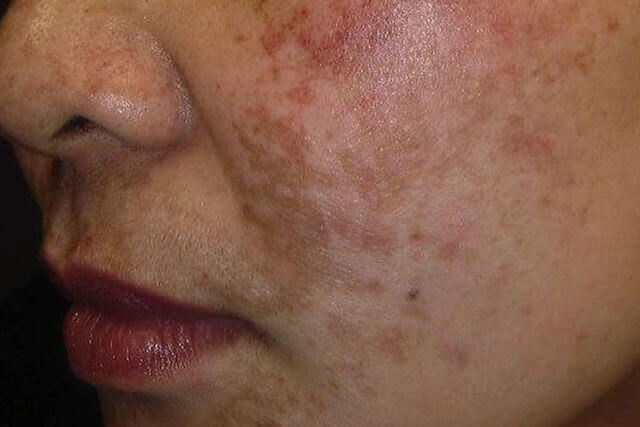
Preventing hyperpigmentation is always better than trying to treat it later, so instead of finding remedies, take some preemptive measures. Here are some ways you can prevent any darkening of the skin.
Avoid Too Much Sun Exposure
Especially during the summer at the beach, it can be tempting to bask under the hot sun and get that beautiful golden tan many people desire. But as mentioned earlier, if you get sun damage earlier in your life, later on in life, patches of your skin can get darker without sun exposure at all.
Sunbathing once in a while is acceptable, but during moments when being outdoors is necessary, always cover-up. Wearing a hat, for one, can be hugely helpful.
And if you can, avoid prolonged exposure by standing in the shade.
Use Sunscreen
If you can’t avoid being under direct sunlight, apply sunscreen regularly. Experts recommend getting a brand that holds an SPF level of 30 or higher.
Sunblock lotions, for example, deflect UV rays through certain components that act as a filter to the skin, such as zinc oxide. Sunscreens, on the other hand, dampen the UV light through the chemical component octocrylene.
Experts recommend applying sunscreen about half an hour before you expose yourself to the sun. Reapplication should be done as needed or every two hours.
Avoid Picking Pimples
It can be tempting to pick at an annoying pimple or zit, especially if you have a major event coming up. It may be a temporary solution, but the repercussions of doing so can be much more difficult to deal with.
Picking at a pimple only increases the likelihood of inflammation, which also boosts the risk of developing dark spots. Avoid this problem altogether and just leave it be.
Pay a Regular Visit to Your Dermatologist
An excellent preventive measure for hyperpigmentation and acne development is a regular visit to the dermatologist. Your doctor should be able to give you sound advice on skincare, from acne relief to proper sun protection.
Most doctors give tips like using exfoliating cleansers or taking spot treatments. In some cases, they may prescribe the use of products with stronger ingredients like salicylic acid.
Either way, you’ll get some much-needed advice to avoid getting hyperpigmentation and your skin getting darker in certain spots.
Conclusion – Why Is My Skin Getting Darker Without Sun?
So if you’re still asking yourself, why is my skin getting darker without sun? If your skin is getting darker without sun exposure, then you’re likely faced with a case of hyperpigmentation. It occurs when the body’s melanin count significantly increases and gets clumped up in one particular area.
Hyperpigmentation may be caused by hormonal changes, especially among women who go through pregnancy or menopause. But other causes include acne scarring and age spots, a byproduct of too much sun exposure.
While hyperpigmentation might be quite tough to deal with at times, the one positive thing about it is that it is very much curable using uncomplicated methods. Many of these remedies and cures can be done right in the comfort of your own home. You can also choose to seek help from a medical professional.
The main act of prevention is to make the right lifestyle choices. One way to lessen the chances of hyperpigmentation is by avoiding too much sun exposure. Another way is by always minding your daily skincare routines.
Part of that is to not pick on pimples or other blemishes, no matter how tempting it can be. If you haven’t seen improvement, it is a good idea to see a dermatologist.
Remember to focus on prevention first, as that is better than trying to find a cure later. Get to the root of the issue immediately before it becomes a problem you’re unable to handle.

![Neutral Skin Tone Defined [and Best Colors for Neutral Skin] neutral skin tone](https://skincaregeeks.com/wp-content/uploads/2021/05/neutral-skin-tone-150x150.png)

